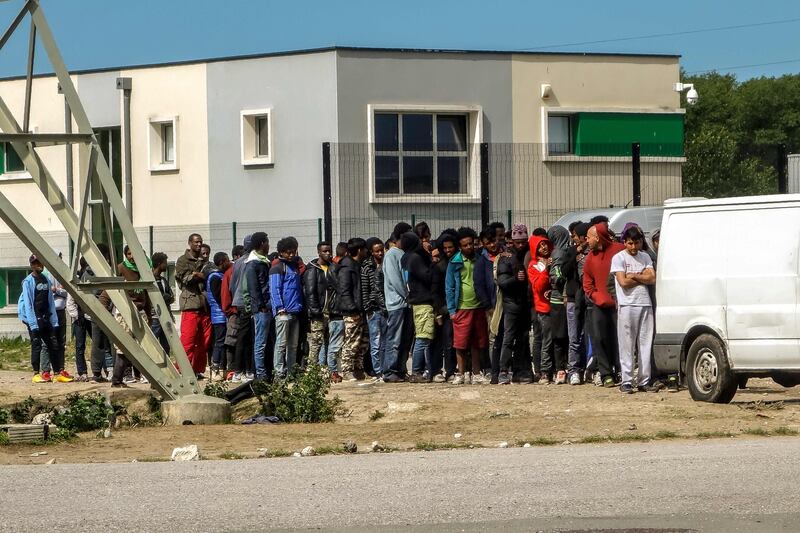A pledge by the French authorities to improve the squalid living conditions of migrants in the port city of Calais has been delayed because of a shortage of mobile shower units during the country’s grape picking season, refugee groups said Saturday.
France’s top administrative court last month ordered the government to install toilets and washing facilities for hundreds of migrants living rough in the woods and wasteland of the northern city after criticising their “inhuman or degrading” treatment.
Local officials met with the agencies late Thursday and promised to provide water trucks, toilet facilities, but no showers before the end of August, because of a shortage of the mobile units, according to a memo of the meeting seen by The National.
Some of the equipment “is not available because of the grape-picking in the south of France,” said Francois Guennoc, vice-president of L’Auberge des Migrants in Calais who was at the meeting.
Ten months after the French authorities razed a camp known as the ‘Jungle’ that was home to some 9,000 migrants, local agencies say about 1,000 people have returned to the area along the northern French coast in the last few months as they seek to end their long journeys in the United Kingdom.
Several informal camps have sprung up that have become home to the migrants — mainly from Afghanistan, Pakistan, Eritrea and Ethiopia — in industrial parks, scrubland and underneath road bridges where they rely on daily handouts of food, clothing and medical treatment. Voluntary agencies have reported a surge in scabies, a tick-borne skin condition, as they cannot provide enough clean clothes for the migrants.
“If we have to go for a shower, we go over there,” said Ahmed Abdullah, an Iraqi-Kurd, pointing to a small lake close to an informal camp where more than 100 migrants are sleeping rough at Dunkirk, 40 kilometres from Calais. “It’s very cold.”
The local and national authorities have balked at providing permanent facilities for the migrants, concerned that it might encourage others to the area. The mayor of Calais had vowed to ignore the July 31 court ruling before she was overruled by senior officials.
Charities working in the area said that the offer on Thursday showed that authorities were only prepared to do what was needed to avoid falling foul of the law, despite a promise last month by Emmanuel Macron to end migrant encampments in France.
Even when the showers are installed, the authorities say they can be used by only the most vulnerable: the sick, the elderly, families, children and women.
With the bulk of the migrant camps populated by young men, Mr Guennoc estimated that only one in 10 migrants would be eligible for a shower under the government’s rules. “They are trying to do the bare minimum,” he said.
The number of migrants in the area has been swollen by several hundred in the last week by migrants travelling from Paris and other parts of France for buses that will take them to reception centres to claim asylum, said Mr Guennoc.
But the majority sleeping rough are camped close to the major roads and rail links in the hope of stowing away on lorries to make the final 40km journey across the Channel to claim asylum or live illegally in the UK, citing the language difficulties and official hostility to their presence in France.
Several hundred people are living on wasteland 3km from the ferry port of Calais, some sleeping on the roofs of industrial units or on top of heaps of building rubble where they are able to keep a lookout for the French police patrols in the area.
Police units are conducting daily operations to snatch sleeping bags, plastic sheeting and tents and arrest some of those sleeping rough to prevent any permanent camp from springing up, according to the migrants and organisations set up to help them.
“They wouldn’t let animals live like this,” said one young migrant, who declined to be named. “We don’t want to cause trouble. We just want a better life.”







